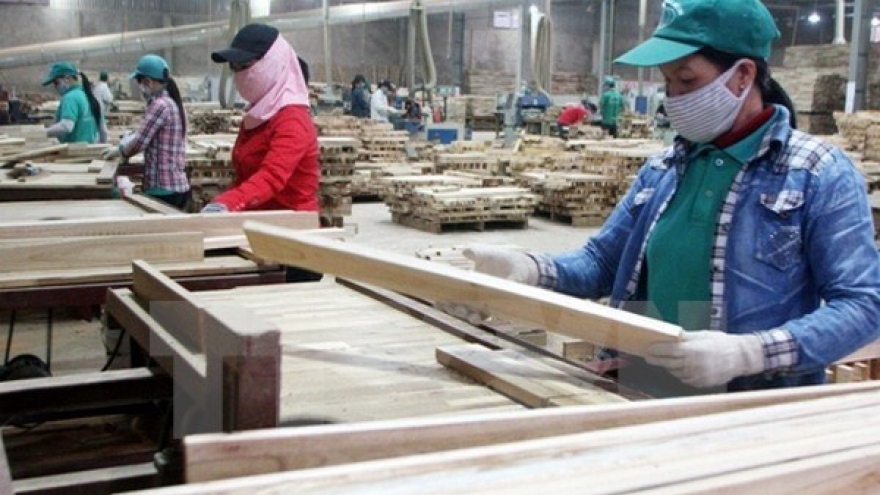Wood pellet spike in Japan signals potential for Vietnam
VOV.VN - New record highs for trade of wood chips from Vietnam are projected for 2017 with China and Japan accounting for 70% of total exports followed by Finland, Sweden and Turkey, reports the Wood Resource Quarterly.
 |
| Photo: Internet |
Turkey is the only country to import wood chips for use in producing medium density fibreboard, which is a wood product with a wide variety of uses that is similar but much denser than plywood or particleboard.
The Chinese demand for wood chips has been further heightened by governmental logging bans in 14 provinces that have forced buyers to source more heavily from surrounding countries including Vietnam, Laos, Cambodia and Myanmar.
In Vietnam, officials estimate that almost 90% of Central Highlands timber has been sold to buyers in China.
The major sources of hardwood chips for the two dominant importers, China and Japan, are Vietnam followed by Australia, Chile and South Africa in descending order of magnitude of the volume of their exports.
However, Vietnam suppliers face constraints going forward, says the Wood Resource Quarterly, as current export volumes are not sustainable.
Past growth of the industry is attributable to the fact that it has been driven by demand from China; it takes low levels of capital, technology, and labour to establish a wood chip factory; and government policies that have facilitated growth through easy factory licensing and wood chip export tax exemptions.
In 2016, analysts point out, that the Vietnam government for the first time levied a tax on wood chip exports, with the aim of conserving the country’s timber resources and reducing exports in 2017 and later years to China.
Meanwhile, the burgeoning demand for wood pellets in Japan is principally due to aggressive energy policy initiatives that have been introduced by the Ministry of Economy, Trade and Industry aimed at reducing the East Asian island nation’s dependence upon traditional fossil fuels as an energy source.
One of the most significant developments along these lines is the recent announcement by the Japanese Environment Ministry that the country intends to construct 43 high-efficiency coal-fired power plants over the next 10 to 12 years.
This robust expansion of the country’s coal-based energy capacity is viewed as a boon for biomass wood pellet producers, as the stringent emissions targets for these new coal power stations will virtually guarantee a need for co-firing with wood pellets.
Vietnam is not currently well-positioned to take advantage of this increased Japanese demand for biomass wood pellets because producers cannot meet the standards for quality, sustainability and reliability that have been outlined by Japanese importers.
Specifically, Japan requires all imported wood pellets to be Forest Management (FM) certified, and Vietnamese wood pellets do not meet these requirements— but could with adequate industry leadership and training.
The Japanese plans to double down on coal-based energy production presents a unique opportunity for forward thinking concerns in the Vietnamese wood pellet export market as demand shows no signs of slowing any time soon.
Conditions are ripe for a long-term trade partnership between Japan and Vietnamese business concerns that offer significant benefits for the mutual benefit of industry participants from both countries.



